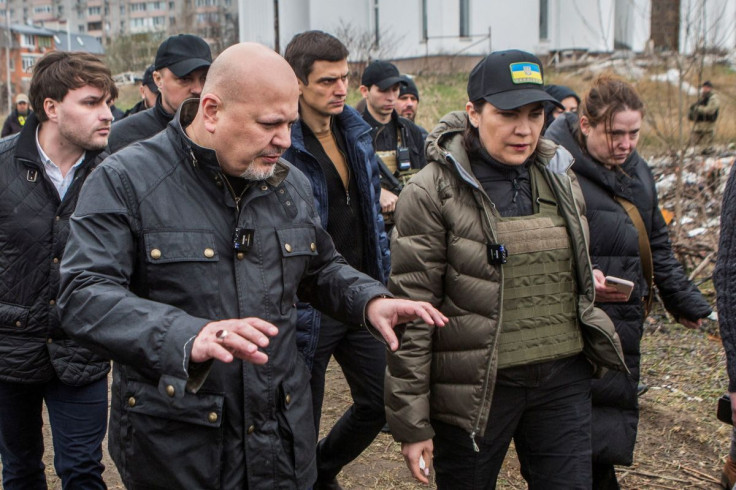Russian Soldier Willing To Expose The Rot At The Core Of 'Criminal War' Started By Moscow
KEY POINTS
- The Russian solider termed the Ukraine invasion "a criminal war that Russia started"
- The solider said he was willing to testify in an international court about his experiences in Ukraine
- He was part of the Russian military unit that has been accused of carrying out heinous war crimes in Bucha
A Russian soldier who has landed in Madrid seeking asylum has reportedly expressed willingness to testify in an international court about Russia's war crimes in Ukraine.
An exclusive report in the Guardian on Thursday said 27-year-old Russian solider, Nikita Chibrin, who spent nearly four months in Ukraine since the start of the invasion, escaped from the war zone in June. He was part of the 64th Separate Guards Motor Rifle Brigade, a unit that has been accused of carrying out heinous war crimes.
In a phone interview with the Guardian, Chibrin said he was eager to testify in an international court about his experiences in Ukraine. "I have nothing to hide," he reportedly said. "This is a criminal war that Russia started. I want to do everything I can to make it stop."
According to the report, Chibrin, whose unit entered Ukraine after crossing over the Belarussian border on Feb. 24, expressed his opposition to the war. Given his opposition, Chibrin said he was demoted from his rank as an army mechanic and tasked to perform manual labor.
"They threatened to jail me. In the end, my commanders decided to use me as a cleaner and a loader. I was placed away from the battlefield," Chibrin reportedly said about his time at the battlefront.
The Guardian noted that it has not been able to independently verify the details provided by Chibrin, however, the report said the soldier provided documents and photographs to support his claim that he was stationed in Ukraine as part of the 64th Brigade of the Russian army.
The report says that Chibrin spent the first month in the village of Lypivka, located 30 miles west of Kyiv. It is during this time that the 64th Brigade has been accused of killing civilians in Bucha and Andriivka, two villages that lie close to Lypivka.
Although Chibrin denied his own involvement in the reported war crimes carried out by his unit, saying he did not fire a gun even "once" while in Ukraine, he spoke of "widespread rumors" among soldiers of his unit who were involved in sexual violence and killings of civilians.
While the U.N. has slammed Russia for using rape and sexual violence as part of its "military strategy" in Ukraine, Moscow has denied targeting civilians and dismissed the evidence of atrocities in cities like Bucha as "fake" and a "provocation."
Though Chibrin said he himself did not witness any shootings and killings during his time in Lypivka, he added that his unit would routinely loot Ukrainian homes. "They looted everything there was. Washing machines, electronics, everything," he said.
The report said that Chibrin managed to flee Ukraine on June 16 after he hid in a truck headed toward Russia for supplies. Once in Russia, he contacted a human rights network Gulagu.net, which helped him to leave the country.
The newspaper said, Vladimir Osechkin, the head of Gulagu, confirmed that his organization helped Chibrin leave Russia. Now in Spain, Chibrin hopes to receive political asylum given his opposition to the war and fear of safety if he were to be sent back to Russia.
According to The Guardian, Chibrin is the second known soldier of the Russian army who has reportedly fled from Russia since its invasion of Ukraine. The report said in August, the Guardian had published an interview with Pavel Filatyev, a former Russian paratrooper who fled the country after expressing his opposition to the war.
With the Russian invasion of Ukraine nearing its ninth month, and Ukrainian forces backed with modern Western weapons reporting major successes in their counter-offensive, there have been several reports of Russian soldiers refusing to fight.

© Copyright IBTimes 2025. All rights reserved.






















